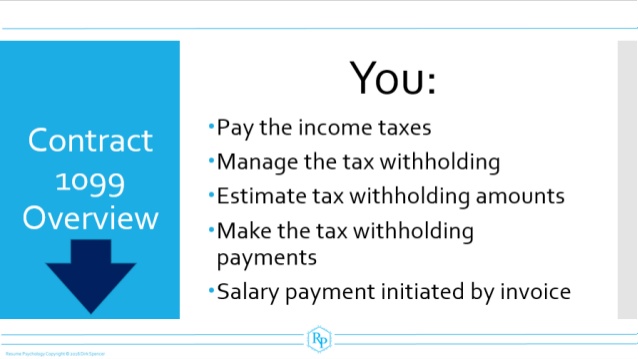
Whereas outsourced bookkeeping and outsourced controller work largely follow a predefined framework, an outsourced CFO relationship can be anything you want it to be. Outsourced CFO services are much more advisory in nature than outsourced bookkeeping or controller services. Today, many outsourced accounting providers are purpose-built for the needs of private businesses, from closely-held family businesses to well-established mid-market firms.
They bring a healthy skepticism that encourages business owners to take a more intelligent, nuanced approach toward decision-making. These professionals possess in-depth knowledge of accounting principles, tax regulations, and industry best practices. Accounting firms offer a wide range of services that organizations can outsource. Many of these capabilities overlap with what your accountant does, although the bookkeeper provides your financial foundation. Much of the bookkeeper’s work feeds into a larger, comprehensive accounting function that your accountant completes – the most important part are your corporate and personal taxes. It’s dead-simple to use and makes those intimidating tasks feel relatively straightforward.
- Be it startups, small to medium-sized businesses, or non-profit organizations, outsourcing offers major advantages.
- But in reality, many businesses across the country, big and small, are embracing outsourced accounting.
- Therefore, your decision will require some budgeting on your end to see what you can afford—whether it be an accounting partner or an alternative.
- Financial planning involves the analysis of a company’s financial position and performance in order to make informed decisions about resource allocation, capital investments, and risk management.
- At some point, you may find it more beneficial to move some or all of your accounting processes in-house.
In conclusion, when outsourcing accounting functions, compliance and data security should be top priorities. When collaborating with an outsourced accounting service provider, businesses gain access to a team of skilled accounting professionals. These experts play a crucial role in ensuring the accuracy, timeliness, and compliance of a company’s financial records.
Engage in a thorough evaluation and selection process to find the right fit for your business. Next, establish strong communication, data sharing, and reporting protocols to ensure seamless integration. Lastly, strive for regular collaboration and continuous improvement in the relationship with the outsourcing firm. Utilizing accounting software is a crucial aspect of outsourcing accounting services.
Non-profit organizations
To make important business decisions, leaders need access to timely, precise 10 smart goals examples for small businesses in 2020 financial data. An outsourced accounting firm provides exactly that with real-time financial dashboards, monthly reports, support with long-term financial planning, and more. Hiring an accountant can be a daunting task for several small businesses and startups. No matter the size of your company, you want the best set of hands to handle your financial records.

It frees up resources
This includes outsourced accountant services, bookkeeping, payroll, financial reports, tax filing and management, accounts payable, accounts receivable, and other accounts-related services. You might say that areas of accounting and bookkeeping must be done internally due to the job’s sensitivity. But with outsourced accounting, your financial statements and compliance tasks are all safe and secure, as providers is retained earnings a current asset are equipped to handle sensitive data and maintain work quality.
Saves time
One alternative, peculiar features of single entry system in the context of bookkeeping of course, is to hire an in-house accountant (or even a team of accountants). However, this might not be cost-effective and, as your company grows, it might not be scalable either. You may also be tempted to manage your own books to keep costs down but, without any accounting experience, it’s easy to make a potentially costly mistake. Outsourcing is a tried and tested resourcing strategy that typically sees businesses identify repetitive and time-consuming tasks and assign them to third-party team members in another location. Controllers are more advanced finance professionals that are usually responsible for managing the day-to-day financial operations of a business. They have a wide range of responsibilities, from managing bookkeeping staff to working on more strategic initiatives.
These kinds of steps can give you peace of mind and help ensure you avoid any costly slip-ups. As mentioned, one alternative to outsourcing is hiring a full-time employee or assembling an accounting team to handle accounting functions. But this is often a huge expense for smaller businesses and difficult to scale as businesses grow. This is why many companies look into DIY accounting systems such as QuickBooks or Xero.
In this comprehensive guide, we’re exploring every element of outsourced accounting. We’ll share the types of tasks that can be outsourced and highlight the key issues business owners need to consider when assessing outsourcing accounting providers. Outsourcing accounting functions provides organizations with cost savings, access to expertise, improved financial accuracy, and the ability to focus on core business activities. By outsourcing accounting functions, organizations can leverage the expertise of accounting professionals who stay up to date with changing regulations.
What are the benefits of outsourcing accounting services for a small business?
Outsourcing enables organizations to adapt to the changing requirements of their finance and accounting functions. As a company grows, its financial processes and needs expand, necessitating a more advanced system in place. Outsourcing partners assist in scaling the services according to the company’s size, enabling them to focus on their core competencies without being weighed down by administrative tasks. Cloud computing has considerably changed the landscape of accounting and financial data management.